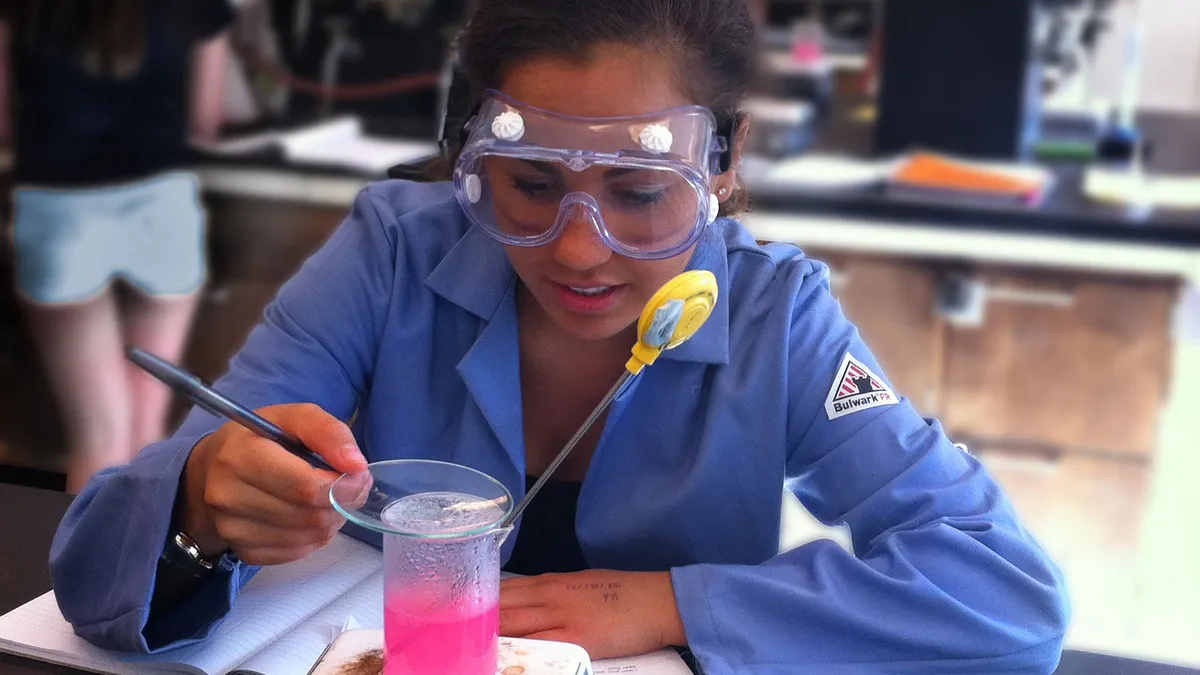Dive Brief:
- A teacher recruitment program that has spread from one university in Texas to 45 universities across the country is having success at raising students’ math and science scores in middle and high school, according to research recently published in the Economics of Education Review.
- UTeach gives STEM majors a way to earn a secondary teaching certificate at the same time they are working toward degrees in math, science and other STEM fields. The researchers, led by Ben Backes of the American Institutes for Research (AIR), found that students taught by a UTeach graduate performed significantly better on end-of-grade tests in math and end-of-course tests in science that those taught by teachers who completed a traditional preparation program.
- More than 3,200 students have graduated from the program, and the organization projects that it will produce 7,700 teachers by 2022 and that more than four million secondary students will have been taught by a UTeach teacher.
Dive Insight:
According to national UTeach data, 20% of UTeach graduates are from underrepresented minority groups, 87% of those who enter a UTeach program do enter the teaching profession, and 69% teach in K-12 schools with a majority low-income student population.
When the findings of the study were first presented at a conference last year, Melissa Dodson, a co-author of the study, noted in this blog post that the team is continuing to explore other questions about the program. For example, examining data from Texas, the researchers will look at how retention rates for UTeach graduates compare to those who have completed other university and alternative teacher preparation programs.
Drawing on data from a survey that UTeach candidates complete at the end of the program, the researchers will also examine how confident and prepared they feel to teach, as well as their concerns, and then compare those responses to how effective they are in the classroom. These questions are important for administrators to consider as schools continue to look for ways to improve retention and address teacher shortages in STEM subject areas.









